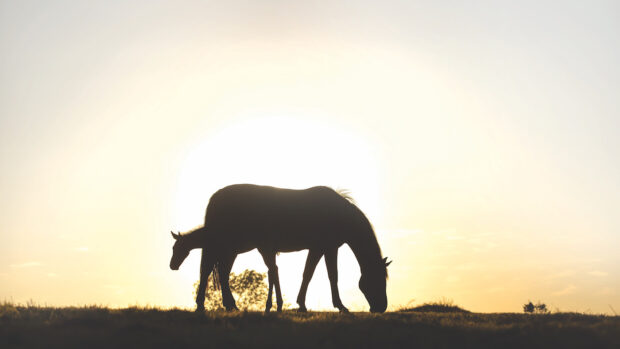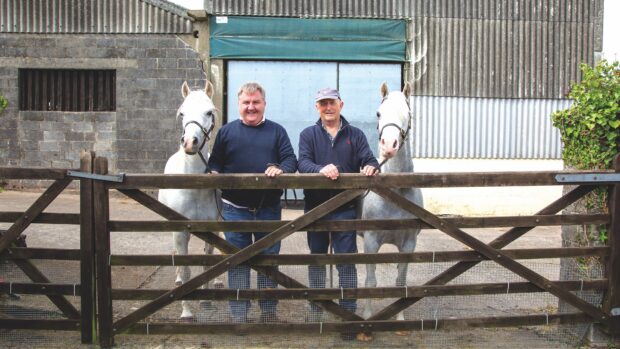There has been huge frustration across the industry as a last-minute solution to new border checks on imported semen was agreed – but it was not universally accepted.
H&H reported that the industry was working with the Government to tackle potential issues when border control posts (BCPs) came in at the end of April. As part of leaving the EU, Britain had to introduce BCPs for animals and germinal products. And because equine semen comes into the high-risk category of imports, all consignments were to be checked.
Major concerns were raised about how long this would take, in what is a very time-sensitive process when fresh chilled semen is involved. And “at the last minute”, the Government agreed a temporary pilot scheme by which port health authorities could reduce the check rate from 100% to 20%, with vets at destination confirming all was as it should be.
This was welcomed by the industry, not only as a temporary solution but also one that could provide feedback for a permanent scheme. But then it emerged that although East Midlands Airport will adopt the solution, by today, 29 April, Uttlesford District Council, the port health authority that covers Stansted, will not.
“It’s still up in the air with Stansted, which is extremely frustrating,” British Horse Council chairman David Mountford told H&H. “The industry has been banging on the table about this for months with Defra, there have been a number of meetings with ministers, but despite assurances, it wasn’t till the last minute that a temporary solution was agreed.
“Although East Midlands has agreed to the pilot, which will hopefully ensure semen isn’t delayed reaching mares, Stansted wasn’t told about it promptly, so isn’t going with it.”
Mr Mountford said he has been told Stansted is optimistic it can carry out the checks with no delays, but this has not yet been tested. And it is not known what the extra associated costs will be, or what impact this could have, at the height of the breeding season.
“It was said that Brexit would reduce red tape and have no negative impact on trade, but this is the opposite,” he said. “It’s unbelievable; we’ve had years of operating biosecure fresh chilled semen imports and there hasn’t been a related outbreak of infectious disease in living memory.
“But now we’re supposedly at more risk than we were last year so have to pay for enhanced and time-consuming checks, irrespective of the damage the process might do to the industry.”
One major issue is the classification of equine semen as high-risk, despite the fact it is all checked by an official vet before departure and certified as being from the right stallion, who has been health-tested and in quarantine for 30 days. The semen is then checked again in this country by the inseminating vet.
Lorna Wilson of Elite Stallions told H&H this is the “fundamental problem”.
“All these stallions have been tested so thoroughly, they’re clear of any disease,” she said. “So the whole purpose of the checks is null and void.”
Ms Wilson added that she welcomed the idea of the temporary scheme, adding that it will “provide real data and they can work on a long-term solution”. But if Stansted does not accept it, the issue is not only possible delays but also huge extra costs.
“Defra’s import risk management team has been carrying out checks for years, at no cost,” she said. “But now it’s going to the BCPs, we’re being hit with a massive tax, essentially, to do the work.”
Ms Wilson added that the estimated extra cost for those checked at Stansted could be significant. And from a practical perspective, she and clients will not know in advance which will be checked.
“It’s ridiculous,” she said. “BCPs aren’t allowed to make a profit so where are these costs coming from? We’re working with Stansted, but I think Defra needs to do something.”
A Defra spokesman told H&H: “We have worked closely with the equine industry to support their readiness for the introduction of border checks.
“We have agreed a temporary measure, available to port health authorities to implement and reduce the import check rate for chilled equine germinal products. This will allow this time-sensitive trade to continue while ensuring our biosecurity is protected.”
When asked about the concerns, and the possibility of reclassification, the spokesman said: “We have communicated this update to points of entry, and then it’s their decision to implement the measures if they choose to.”
He added that “they were notified as soon as possible”.
H&H has approached Uttlesford District Council for comment.
You might also be interested in:

‘It’s bonkers equine semen is classified as high risk’: industry works to solve issues as border checks come in

‘I’d rather be fined than let my horse colic’: concern over new UK border ‘shambles’

Subscribe to Horse & Hound magazine today – and enjoy unlimited website access all year round
Horse & Hound magazine, out every Thursday, is packed with all the latest news and reports, as well as interviews, specials, nostalgia, vet and training advice. Find how you can enjoy the magazine delivered to your door every week, plus options to upgrade your subscription to access our online service that brings you breaking news and reports as well as other benefits.



